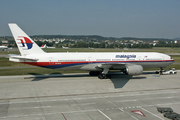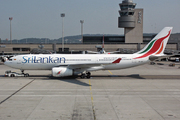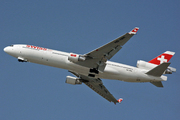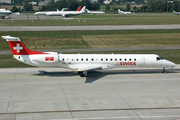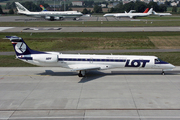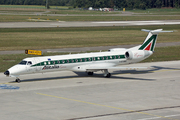Dépêches
Research and Markets: Asia Pacific RFID Aviation Market Report - RFID Vendors to Take Advantage of the Turbulence in the Aviation Industry
Dépèche transmise le 14 septembre 2009 par Business Wire
DUBLIN--(BUSINESS WIRE)--Research and Markets (http://www.researchandmarkets.com/research/0a09b9/asia_pacific_rfid) has announced the addition of Frost & Sullivan's new report "Asia Pacific RFID Aviation Market" to their offering.
This research service looks at the usage of RFID and investigates the various dynamics within the Asia Pacific aviation industry.
This Frost & Sullivan research service titled Asia Pacific RFID Aviation Market provides key market drivers, industry challenges, and forecasts. In this research, Frost & Sullivan's expert analysts thoroughly examine the following radio frequency identification (RFID) applications: baggage handling, in-flight services/catering services, cargo tracking, as well as maintenance, repair, and overhaul.
Market Overview
RFID Vendors to Take Advantage of the Turbulence in the Aviation Industry
The slowdown-hit Asia Pacific aviation industry has witnessed a steep drop in revenues, causing more than 20 airlines to file for bankruptcy. According to the International Air Travel Association (IATA), the industry lost more than 180,000 jobs and a staggering $5.8 billion in 2008 alone and is anticipated to lose another $2.5 billion in 2009. With no anticipated improvements in the economic climate till 2010, the aviation industry is working on implementing dynamic and innovative solutions with a strong promise of return on investment (ROI) to remain competitive and profitable. Some aviation companies are looking at leveraging technologies such as RFID to raise efficiency levels, reduce wastage, and increase security. Initial results have shown that RFID has considerable potential to save costs, which is pivotal for long-term sustainability and profitability within the aviation industry.
Despite their strong need to achieve operational efficiency, the total cost of ownership of RFID technology discourages several users from investing in it. This is a significant issue, considering certain applications such as baggage handling require not only readers but also high volumes of tags to keep track of the baggage. In addition, system integration with the existing back-end systems could be prohibitively expensive, particularly when there is a credit crunch. RFID vendors need to allay end users' fears by promoting the technology's ability to dual up and incorporate barcodes, ensuring that the track and trace function is available even when a particular location is not RFID-enabled. "Further, RFID's capabilities to converge with other technologies such as sensors enable a new range of applications," says the analyst of this research. "RFID can be used to detect a diverse range of environmental parameters such as temperature, humidity, and vibration; thus increasing the possibilities of this technology's usage within the aviation industry."
The market has got the backing of various governments and industry-based associations such as IATA and the Federal Aviation Administration (FAA), which have been investigating and promoting RFID's usage within the aviation industry. Stakeholders within the aviation industry have begun pilot testing RFID and many have been satisfied with the initial results, leading to full-scale rollouts. The ratification of various standards governing RFID technology will also go a long way in acquiring more customers from the aviation industry. "Through the formation of various standards, RFID companies can overcome interoperability issues and even ensure competitive pricing, as end users will not be locked to a single vendor's products," notes the analyst. "Moreover, considering application within the aviation industry is also likely to include open-loop systems, it is vital for all stakeholders to be able to use a system that can work seamlessly anywhere."
Market Sectors
Expert Frost & Sullivan analysts thoroughly examine the following market sectors in this research:
By Application:
- Baggage handling
- In-flight services/catering services
- Cargo tracking
- Maintenance, repair, and overhaul
Key Topics Covered:
1. EXECUTIVE SUMMARY
2 MARKET ANALYSIS
3 RFID APPLICATION DYNAMICS IN THE AVIATION INDUSTRY
4 COMPETITIVE LANDSCAPE
5 CONCLUSION
6 APPENDIX
For more information visit http://www.researchandmarkets.com/research/0a09b9/asia_pacific_rfid
- 24/04Ibis Styles London Heathrow : l'hôtel géré par un passionné d'aviation pour les passionnés d'aviation (photos + vidéos)
- 23/04 SkyUp renouvelle son partenariat avec Wizz Air
- 23/04 Play : résultats de mars 2024
- 23/04 Les garde-côtes japonais commande trois Airbus H225 supplémentaires
- 23/04 Vueling et Make-A-Wish France signent un partenariat
- 23/04 TUI annonce ses destinations au départ de Deauville pour l'été 2024.
- 23/04 Twin Jet renforce son programme de vols sur la ligne Toulouse/Rennes
- 23/04 Norse Atlantic Airways : résultats du mois de mars 2024
- 23/04 Volotea renforce son offre entre Lille et le Maroc
- 22/04 Finnair a dévoilé son programme de vol pour les saisons hiver 2024 et été 2025
- 22/04 Qatar Airways annonce le lancement de vols à destination de Kinshasa
- 22/04 Vietnam Airlines et CAE prolongent leur accord
- 22/04 Mermoz Academy de Tours commande des Tecnam P-Mentor
- 22/04 Transavia France reçoit son 2e Airbus A320neo
- 20/04 Friedrichshafen 2024 : Blackwing présente un nouveau modèle de son BW650RG
- 20/04 Friedrichshafen 2024 : JMB Aircraft présente son Phoenix
- 19/04 Friedrichshafen 2024 : le projet "Fly To The North"
- 19/04 Friedrichshafen 2024 : Aura Aero présente pour la première fois ses trois appareils
- 19/04 Friedrichshafen 2024 : Duc Hélices présente son hélice Tiger-3
- 19/04 Friedrichshafen 2024 : Splash-in Aviation expose son Pétrel X


